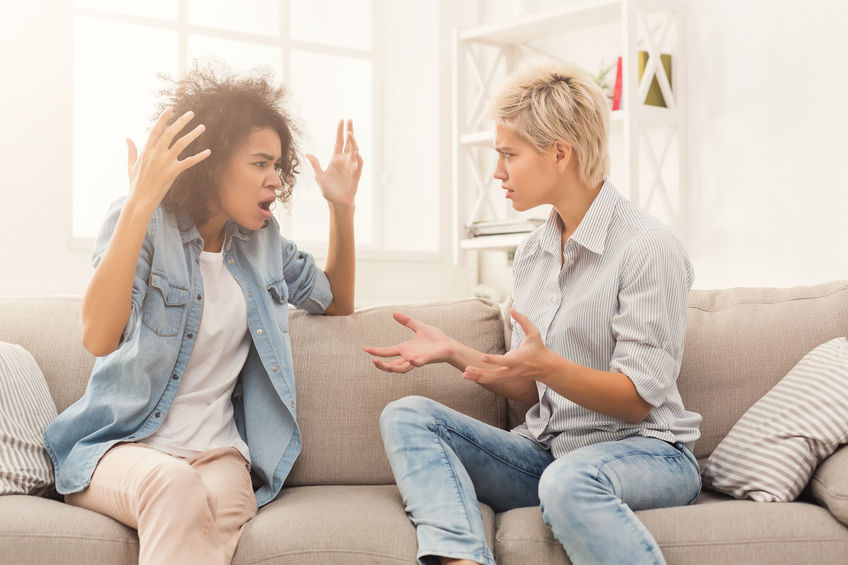Couples therapy is a valuable resource for couples seeking to strengthen their relationships, overcome challenges, and foster a deeper connection. For lesbian couples, therapy can be particularly beneficial in navigating the unique dynamics and experiences within same-sex partnerships. In this article, we will explore the importance of couples therapy for lesbians, common issues they may face, and the benefits of seeking professional support. We will also guide finding the right couples therapist and offer practical tips for maintaining a healthy and fulfilling relationship.
Contents
Importance of Couples Therapy
Couples therapy serves as a proactive approach to relationship maintenance and growth. It provides a safe space for couples to explore their thoughts, feelings, and concerns while equipping them with effective tools to enhance their communication and resolve conflicts.
In the case of lesbian couples, therapy offers an opportunity to address specific challenges that arise within same-sex relationships, fostering understanding, and promoting long-term satisfaction.
Understanding Lesbian Relationships

Before delving into the significance of couples therapy, it is important to understand the dynamics of lesbian relationships. Lesbian couples face both common relationship issues and unique challenges shaped by societal attitudes, cultural factors, and personal experiences.
By acknowledging and addressing these factors, couples can create a foundation for a resilient and thriving partnership.
Common Issues in Lesbian Couples
These are some of the common issues faced by lesbian couples:
- Coming out and self-acceptance: Lesbian couples often navigate the journey of coming out and self-acceptance, which can impact their relationship dynamics and individual well-being.
- Family and societal acceptance: External pressures and societal expectations can strain relationships, as couples strive to establish their identities within a sometimes unsupportive environment.
- Role definition and division of labor: Similar to heterosexual relationships, lesbian couples may face challenges in defining roles and responsibilities, especially when societal norms are not clearly defined.
- Communication barriers: Effective communication is vital in any relationship, and lesbian couples may encounter additional hurdles due to societal taboos, fear of judgment, or the unique dynamics of same-sex partnerships.
Benefits of Couples Therapy for Lesbians

Couples therapy can be highly beneficial for lesbian couples, just as it can be for any other couple. Lesbian couples face unique challenges and dynamics that can be effectively addressed and navigated through couples therapy. Here are some specific benefits of couples therapy for lesbians:
- Improved Communication: Couples therapy provides a safe and structured space for partners to express their thoughts, feelings, and concerns openly. Therapists can facilitate effective communication techniques that help couples actively listen to each other, express themselves clearly, and resolve conflicts healthily.
- Understanding of Unique Challenges: Lesbian couples may encounter specific challenges related to their sexual orientation, societal norms, coming out experiences, and family dynamics. A couples therapist who is knowledgeable and affirming of LGBTQ+ issues can help couples navigate these challenges and develop strategies for coping with external stressors.
- Validation and Affirmation: Couples therapy can provide validation and affirmation for the experiences, emotions, and identities of both partners. It creates an inclusive and accepting environment where lesbian couples can feel understood, acknowledged, and supported.
- Strengthening of Intimacy and Connection: Therapists can assist couples in enhancing their emotional and physical intimacy. This may involve exploring each partner’s needs and desires, addressing any barriers to intimacy, and fostering a deeper connection between the couple.
- Conflict Resolution: Every relationship experiences conflicts, and couples therapy provides a structured framework for resolving them effectively. Therapists can teach couples techniques to manage conflicts constructively, negotiate compromises, and find win-win solutions that strengthen their relationship.
Finding the Right Couples Therapist
Finding the right couples therapist is an important step in ensuring a positive and effective therapy experience. Here are some tips to help you find a suitable couples therapist:
- Seek LGBTQ+ Affirmative Therapists: Look for therapists who specialize in or have experience working with LGBTQ+ individuals and couples. They will likely be more knowledgeable and understanding of the unique challenges faced by lesbian couples.
- Ask for Recommendations: Seek recommendations from trusted sources, such as friends, family, or healthcare professionals. They may be able to suggest therapists who have provided affirming and effective couples therapy for other LGBTQ+ individuals or couples.
- Research Therapists’ Backgrounds: Conduct online research to gather information about potential therapists. Read their profiles, websites, or online reviews to learn about their areas of expertise, training, and experience working with lesbian couples. Look for therapists who create a safe and inclusive environment.
- Interview Potential Therapists: Contact a few therapists and schedule initial consultations or phone interviews. This will allow you to ask questions and assess their suitability. Inquire about their approach to couples therapy, their experience with LGBTQ+ clients, and how they address specific concerns relevant to lesbian couples.
- Assess Therapist’s Affirming Attitude: During the initial consultation, pay attention to the therapist’s attitude and openness towards LGBTQ+ issues. A supportive and affirming therapist will be non-judgmental, create an inclusive space, and demonstrate cultural competence.
- Evaluate Therapeutic Fit: Consider the therapist’s communication style, personality, and approach. It is essential that both partners feel comfortable and safe with the therapist. Trust your instincts and choose a therapist who resonates with both of you.
The Role of Communication in Lesbian Couples Therapy

Communication plays a central role in lesbian couples therapy, just as it does in any other form of couples therapy. Effective communication is vital for understanding each other’s needs, expressing emotions, resolving conflicts, and fostering a deeper connection. Here are some key aspects of communication in lesbian couples therapy:
- Creating a Safe Space: A couples therapist creates a safe and non-judgmental environment where both partners feel comfortable expressing themselves openly. This space allows for honest and vulnerable communication without fear of criticism or rejection.
- Active Listening: Therapists guide partners to practice active listening, which involves fully attending to and understanding each other’s words, feelings, and perspectives. Active listening promotes empathy, validation, and a deeper understanding of each other’s experiences.
- Expressing Emotions: In therapy, lesbian couples are encouraged to express their emotions honestly and authentically. This includes positive emotions such as love, joy, and affection, as well as challenging emotions like anger, frustration, or sadness. Therapists help couples navigate emotional expression in a way that promotes understanding and validation.
- Non-Verbal Communication: Non-verbal cues, such as body language, facial expressions, and tone of voice, can convey powerful messages. Therapists assist partners in recognizing and interpreting these non-verbal cues to gain a deeper understanding of each other’s emotions and intentions.
- Conflict Resolution: Lesbian couples may encounter conflicts or disagreements in various aspects of their relationship. Couples therapy helps partners learn constructive ways to communicate during conflicts, focusing on active listening, using “I” statements to express feelings, and avoiding blame or criticism. Therapists facilitate effective communication techniques to help couples find resolutions that meet both partners’ needs.
Key Aspects of Lesbian Couples Therapy
These are some of the key aspects of lesbian couples therapy:
Building Trust and Intimacy
Trust and intimacy are cornerstones of a fulfilling relationship. In lesbian couples therapy, therapists guide partners through exercises and discussions that help build trust and enhance emotional and physical intimacy. By addressing past wounds, insecurities, and vulnerabilities, couples can create a safe and supportive environment for growth and connection.
Managing Conflict and Resolving Differences
Conflicts and disagreements are inevitable in any relationship, and lesbian couples therapy provides a space to address them constructively. Therapists facilitate discussions and teach conflict resolution techniques, empowering partners to navigate conflicts with respect and understanding. By learning effective problem-solving strategies, couples can minimize the negative impact of conflicts and strengthen their bond.
Strengthening Emotional Connection
Emotional connection is vital for the well-being and longevity of any relationship. Through various therapeutic interventions, lesbian couples can deepen their emotional connection, nurture affection, and create shared meaning. Therapists guide partners in exploring their emotional needs, fostering empathy, and cultivating rituals of connection that keep the relationship vibrant and fulfilling.
Sexuality and intimacy are integral components of romantic relationships. In lesbian couples therapy, therapists help partners explore their sexual desires, preferences, and challenges. By addressing issues related to desire discrepancy, sexual satisfaction, and communication around intimacy, couples can navigate their sexual journey with openness, respect, and fulfillment.
Overcoming External Challenges
Lesbian couples may encounter external challenges that impact their relationship, such as discrimination, social stigma, or lack of legal recognition. Therapists offer support, guidance, and coping strategies to navigate these challenges, empowering couples to thrive despite societal barriers.
Balancing Individuality and Togetherness
Maintaining a healthy balance between individuality and togetherness is essential in any relationship. In lesbian couples therapy, partners learn to express their individuality while nurturing their partnership. Therapists facilitate discussions on personal growth, self-care, and shared goals, enabling couples to create a dynamic and supportive balance between independence and interdependence.
Maintaining a Healthy Relationship
Beyond therapy sessions, lesbian couples need to engage in ongoing practices that promote relationship health. This can include regular communication check-ins, engaging in shared activities, prioritizing self-care, and seeking ongoing support when needed. By consciously investing in their relationship, lesbian couples can cultivate a lasting and fulfilling partnership.
Conclusion
Lesbian couples therapy offers invaluable support in nurturing love, enhancing communication, and addressing the unique challenges faced by same-sex partnerships. By seeking professional guidance, lesbian couples can strengthen their bond, navigate obstacles, and foster a relationship grounded in love, respect, and understanding. Remember, seeking help is a sign of strength and commitment to the growth and well-being of your relationship.
Life may sometimes be challenging if you are a lesbian, but Online Lesbian Counseling can help. Get experienced LGBTQ therapists at PrideMantra: Book a trial LGBTQ therapy session.


